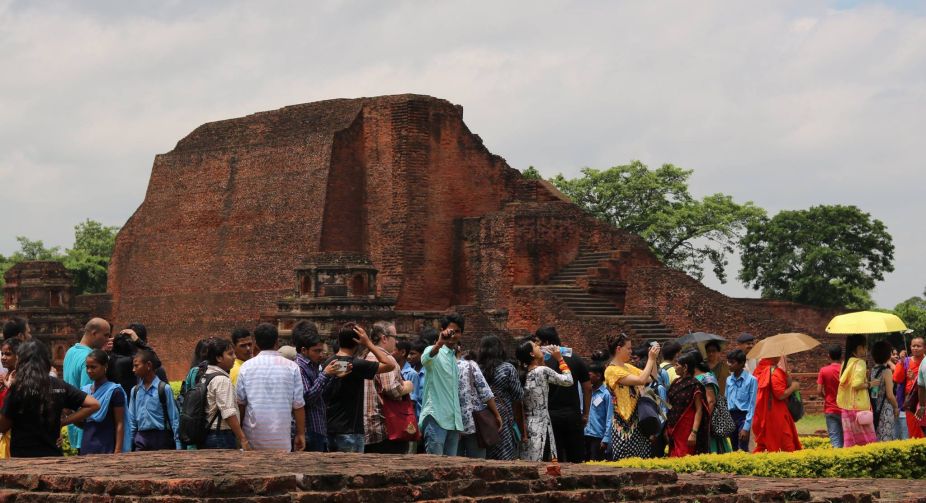Tibetan Buddhist manuscripts gathering dust in Patna museum
These manuscripts were originally written in Sanskrit by scholars and monks studying at ancient Nalanda and Vikramshila universities between 7th to 12 century AD.

The saffronite
stamp chimes oddly with the character and purpose of Nalanda University, an
embodiment of South-east Asian cooperation in matters academic. Surely, the Chancellor, George Yeo of Singapore, and the governing body deserved better than the
peremptoriness by which the Bharatiya Janata Party government at the Centre
sought to impose its will by reconstituting the university’s board in a manner
that infringes on its autonomy and international character. Direly critical for
the university and academics in the larger context is the resignation of Yeo
on Friday.
He
has underlined the fact that he was assured of the University’s autonomy, “but
now things had changed” — when he was invited to take charge he was
“repeatedly assured that the University would have autonomy. This appears not
to be the case now”. Implicit in the resignation is the protest against the
manner of the board’s reconstitution; the campus at Nalanda cannot be used as a
bridge between the Hindutva agenda and academics.
No
less unfortunate for the institution is that the Chancellor has put in his
papers — opposing the Centre’s intervention — on the day of Nalanda
University’s foundation.
Advertisement
Across
Asia, India’s HRD ministry has cut a sorry figure. The Centre has apparently
effected the changes with the stroke of an under-secretary’s pen, and the
arbitrary initiative is reaffirmed in the Chancellor’s e-mail to the outgoing
members of the board, specifically that he had neither been consulted nor
informed in advance. In effect, Mr Yeo and the distinguished brains on the
board were presented with a fait accompli.
Notably,
at least six members have been axed, pre-eminently Amartya Sen, Nalanda
University’s “founding mentor”, the British peer, Lord Meghnad Desai, the
Harvard historian and Trinamul MP, Saugata Bose, and the New York-based
historian, Tansen Sen. Excluded also are academics from Japan and Singapore.
Clearly, the HRD ministry appears to have proceeded from conclusion to premise
when it informed the nine members of the governing board, including Sen and the
Chancellor, only after the decision was firmed up.
The
institution is a collaborative project that involves a dozen countries, led by
India, and it ought to have been spared a rough-and-ready sarkari prescription
that is geared to reinforce the stranglehold of the ruling party over an
international campus, whose origins date back to ancient India. This
institutional meddling by the party in power can be no less deleterious than
the “detoxification” of history, an exercise in which both the Congress, when
in power, and the BJP have been engaged.
This
meddling comes about a few years after this historical centre of learning was
revived and revamped. The next board is not a wholly academic entity,
consisting in part of loyalist bureaucrats and academics of the saffronite
variety. More’s the pity.
Advertisement